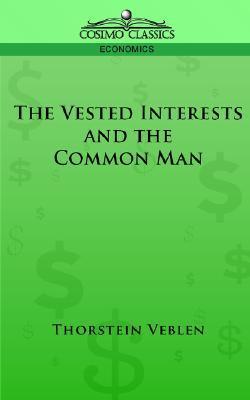BCC: In The Vested Interests and the Common Man, long considered a classic text of economics, Veblen discusses various financial transformations within the historical unfolding of capitalism and examines the value of free enterprise in general. It emphasizes the automation and the loss of direct human relations within the industrial arts as well as social repercussions of capitalistic industry. AUTHOR BIO: Thorstein Veblen (1857-1929) was an American economist and social critic. After studying at Carleton College and at Johns Hopkins, Yale-where he received a Ph.D. in 1884-and Cornell, Veblen taught at the University of Chicago, Stanford University, and the University of Missouri, as well as at the New School for Social Research in New York. His works include The Theory of the Leisure Class (1899), The Theory of Business Enterprise (1904), The Engineers and the Price System (1921), and Absentee Ownership and Business Enterprise in Recent Times (1923).

